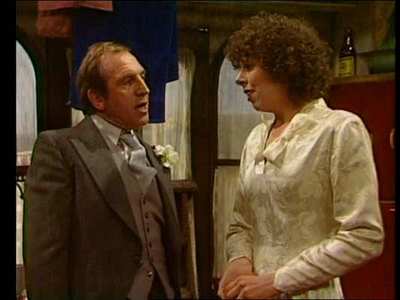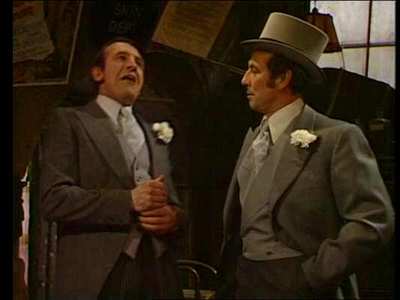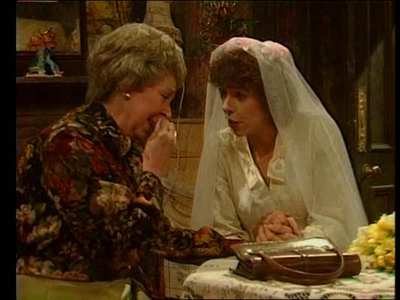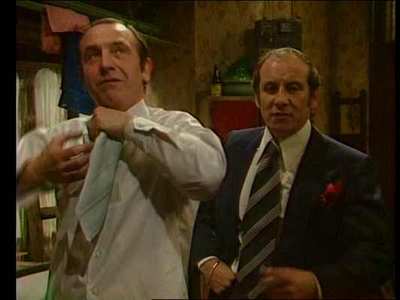Review of Complete Rising Damp, The
Introduction
Eric Chappell`s "Rising Damp" ranks alongside "Fawlty Towers" as one of the defining comedy series of the 1970s. Considered by many to be ITV`s finest, the show made a star of Leonard Rossiter and added his seedy landlord Rigsby to the pantheon of great grotesque comedy characters such as Steptoe and Son, Basil Fawlty, Mrs Slocombe and Anthony Aloysius Hhhancock.
Looking back at the series is an eye-opener to the naivete of the 1970s. Britain just wasn`t a multi-cultural society back then. Rigsby does exhibit some racist tendencies, but these are born of sheer ignorance as are some dazzlingly clumsy (but friendly) queries towards Don Warrington`s Philip from medical student Alan (Richard Beckinsale). Chappell`s script portrays Philip as the only intelligent, balanced character in the house, which may or may not assuage feelings of racism on the part of modern audiences. This show should be viewed as a document of its time, as should any movie or tv programme more than ten years old.
Chappell, a former electricity board accountant, developed the series from his 1970 stage play "The Banana Box". Starring Wilfrid (Steptoe) Brambell as seedy landlord "Rooksby" in its first run in Leicester, Leonard Rossiter adopted his signature character when the play went on tour. The role later to be taken by Richard Beckinsale went to Paul Jones, while Frances de la Tour and Don Warrington took the parts they would transfer to television. A run at the Apollo Theatre in 1973 brought the play to the attention of Yorkshire Television executives, who commissioned Chappell to develop a pilot show. The pilot, which changed the landlord`s name to the final "Rigsby" and cast "Porridge" regular Richard Beckinsale as top-floor tenant Alan was so well received that a full run of six episodes started on the ITV network within three months.
Twenty-eight episodes of the show were made as four seasons between 1974 and 1978, although only 27 are included on this four-disc set (so the "complete" label is misleading). As has been pointed out by forum contributor "Norman Voles", the set does not include the Xmas 1975 special or for that matter the 1980 feature film.

Video
Considering the mid 1970s vintage of the series, and its studio and videotape origins, the image is surprisingly good. There are some videotape artefacts on a couple of episodes - mostly Quad head clogs which cause little diagonal lines of dots - but otherwise the image is very stable and sharp, with no smearing. This, on top of the fact Granada (the current copyright holders) have had the set done on the cheap makes the quality nothing short of miraculous. The image (if I need to say it) is 4:3.

Audio
A very basic DD2.0 Mono mix, as standard.

Features
Absolutely none. Not even subtitles. Menus are static and each episode is mounted as a title without chapter stops, so you can only fast-forward or backward to navigate episodes. You can select individual episodes to play, or run one after another.

Conclusion
At the time of writing this review, there was some confusion about the availability of the title, whether it was available or had been deleted, whether it was exclusive to a single retailer or on general release. This may have been due to the exclusion of the Christmas episode or the inclusion of the last episode of season one which was withdrawn on the initial run of the show because of possible libel towards a Conservative Party political candidate.
Although this is a real no-frills release, as a record of one of the best British sitcoms ever made this is a must-buy. Classic through and through.
Your Opinions and Comments
Be the first to post a comment!